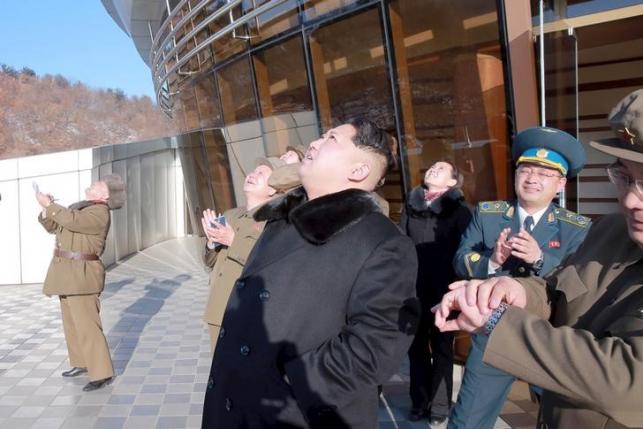US, South Korea, Japan military chiefs to consult on North Korea: US officials
WASHINGTON: The United States' top military commander will discuss North Korea's latest satellite launch with his Japanese and South Korean counterparts this week as part of efforts to strengthen military ties between the three countries, US defense officials said on Monday.
US Marine Corps General Joseph Dunford, chairman of the Joint Chiefs of Staff, will be in Hawaii, home to US Pacific Command, for the meeting, which was scheduled before the North Korea launch and has been widely criticized around the world.
Army General Lee Sun-jin, chairman of the South Korean Joint Chief of Staff, is expected to participate via video teleconference, but it was not immediately clear if Admiral Katsutoshi Kawano, head of Japan's Self-Defense Forces, would participate in person or remotely.
The three countries scheduled the meeting after North Korea conducted its fourth nuclear test on Jan. 6.
Admiral Harry Harris, commander of US Pacific Command, and General Curtis Scaparrotti, US Forces Korea commander, will also participate, said one of the officials.
Harris last month told the Center for International and Strategic Studies think tank that he was a strong advocate of building and expanding multilateral relationships in the region, including one among the United States, Japan and South Korea.
South Korea and the United States announced after Saturday's launch that they would begin formal talks on deploying an advanced US missile defense system called THAAD to South Korea as soon as possible to counter the growing threat of North Korea's weapons capabilities.
US military officials have said the sophisticated Terminal High Altitude Area Defense system built by Lockheed Martin Corp (LMT.N) and the associated AN/TPY-2 tracking radar built by Raytheon Co (RTN.N) are needed in South Korea.
Ken Todorov, a retired brigadier general and former deputy director of the US Missile Defense Agency, told Reuters that North Korea had advanced its capabilities with the latest launch.
US Strategic Command on Monday said it continued to track two objects put into orbit by North Korea, the rocket payload or satellite, and the rocket body.
“This launch, coupled with the recent nuclear test, indicates further advances in the technology necessary to improving North Korea’s capability to strike the continental United States, Alaska or Hawaii,” Todorov said. “Now the threat is more serious."






